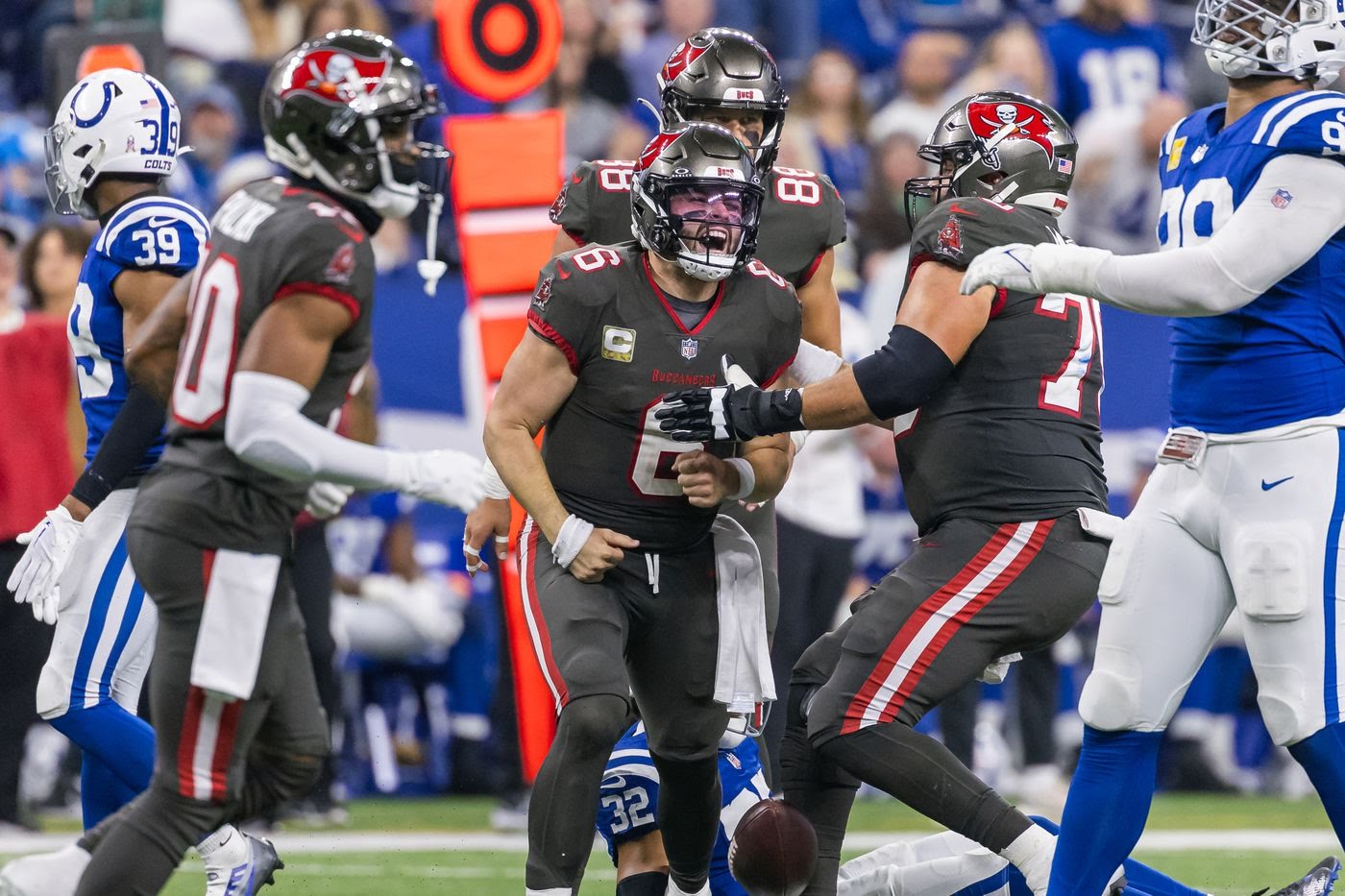tampa bay buccaneers Celebrate after win vs carolina panthers…


The NFL betting action continues with Week 13 matchups. Sunday brings 11 games around the league, including the NFC South showdown at Raymond James Stadium in Tampa, Florida, with the kick-off at 4:05 PM ET, so here’s the best Panthers vs. Buccaneers pick.
Carolina meets Tampa Bay for the first time in 2023, and the Panthers are 1-5 SU and ATS in their last six dates with the Buccaneers. Tampa Bay is a 5.5-point home fave at the moment, while the total sits at 37.0 points.
It feels like nobody told the Carolina Panthers (1-10; 2-8-1 ATS) that they don’t have a first-round pick in the 2024 NFL Draft. Since a 15-13 home win against the Houston Texans in Week 8, the Panthers have lost four games in a row while scoring 13 or fewer points in each of those four tilts.
Last Sunday, the Panthers failed to cover a 3.5-point spread in a 17-10 defeat at the Tennessee Titans, who didn’t score in the second half. Carolina was down 17-3 at halftime, and Chuba Hubbard’s five-yard TD run with 8:02 remaining in the third quarter was the last we saw from the Panthers and Titans.
“We lost a close football game today,” Carolina first-year coach Frank Reich said. “These games are winnable. That message doesn’t fly when you’re 1-10 but I know these games are winnable, I know we have the players and the coaches to do that so we regroup and get ready for this week.”
Reich won’t get ready for Week 13. He was fired on Monday morning, and Chris Tabor, who’s been the special teams coordinator since 2022, was named as interim head coach.
The Panthers will try to turn the corner, but things look pretty bad, especially on the offensive side of the ball. They haven’t gained more than 275 total yards in four straight outings, and Bryce Young has thrown for 675 yards, two touchdowns, and four interceptions during that stretch while completing just 57.6 percent of his passing attempts.
The Tampa Bay Buccaneers (4-7; 7-4 ATS) have dropped six of their previous seven games overall, including the previous two at the San Francisco 49ers 27-14 and the Indianapolis Colts 27-20. The question is when will the Bucs fire Todd Bowles? They are still pretty much alive in the race for the NFC South title despite a 4-7 record.
Tampa Bay was outgained by Indianapolis 394-298 in total yards last Sunday. The Bucs racked up 125 yards on just 19 carries, but Baker Mayfield was sacked six times while throwing for 199 yards, two touchdowns, and an interception. Mike Evans had six catches for 70 yards and a couple of touchdowns, and Rachaad White rushed 15 times for 100 yards.
“It’s just not finishing at the end,” linebacker Devin White said. “It’s not like we’re going out there doing our thing and getting demolished by any teams.
I think that’s the hardest thing is that we’re in every game and we’re making plays, but we’ve got to kind of limit some other things so we can get over the top and win those games.”
Baker Mayfield suffered an ankle injury on the Bucs’ opening drive in Week 12. He finished the game after missing two plays and should give it a go this coming Sunday.
“He’s pretty sore,” Tampa Bay head coach Todd Bowles said. “The MRI was negative. He has a sore ankle. We’ll see how he’s feeling during the week, but it came out negative so that’s a good thing.”
Mayfield has tossed for 2,588 yards, 17 touchdowns, and seven interceptions so far this season. He’s been picked off once in each of his last three games while throwing five TD passes in the process. Mike Evans has caught four of those five touchdowns.












